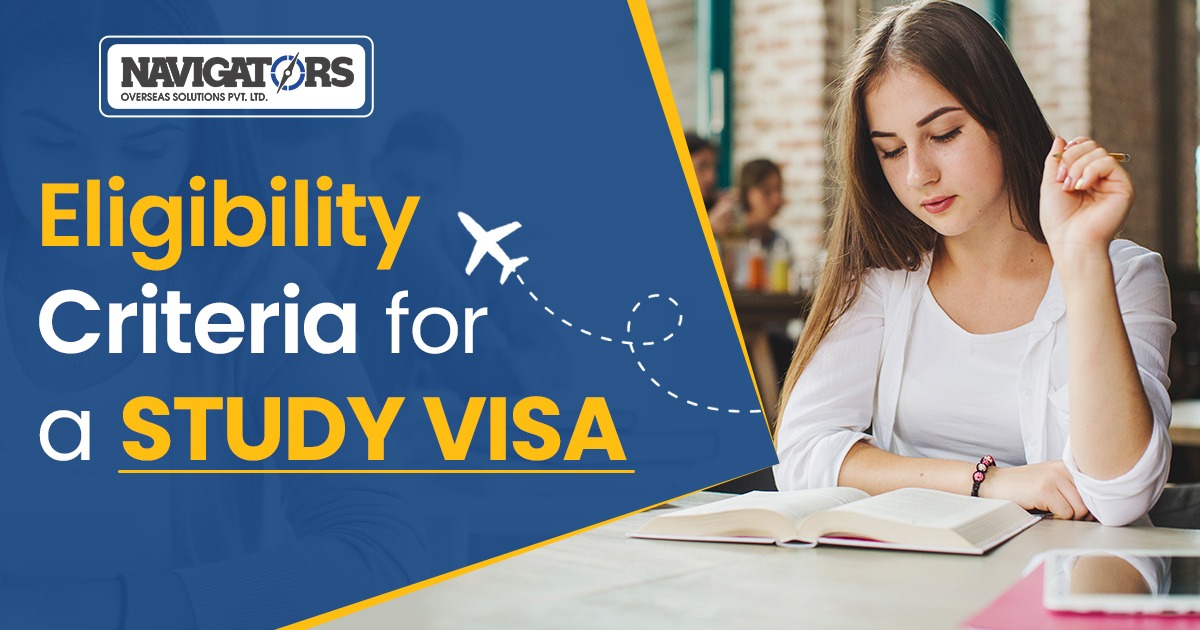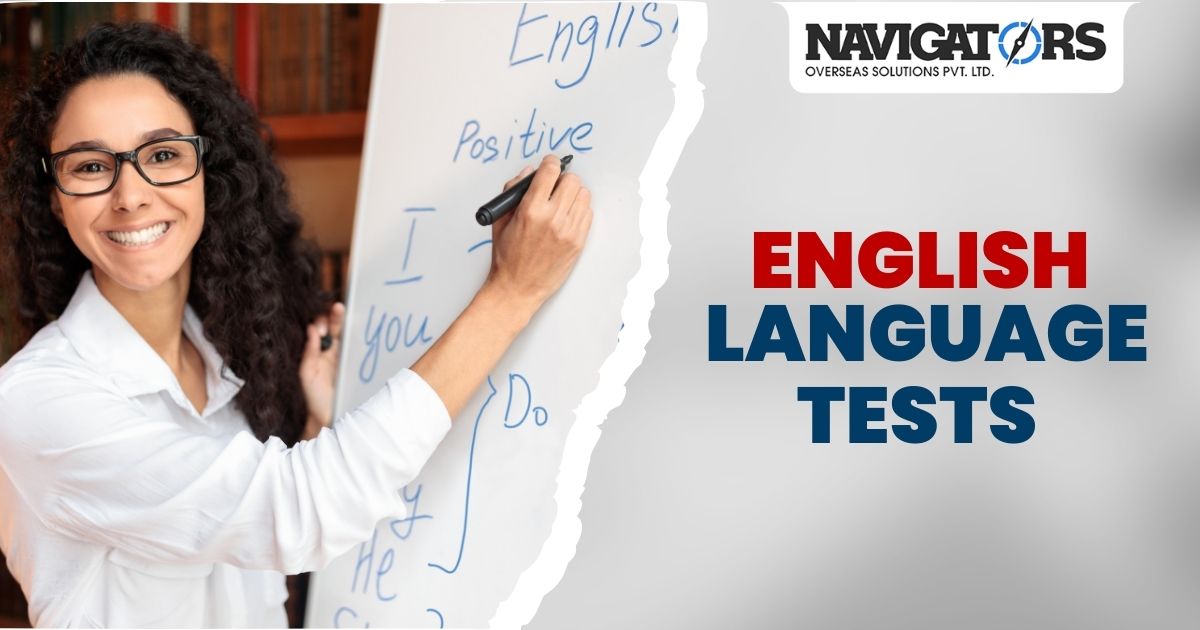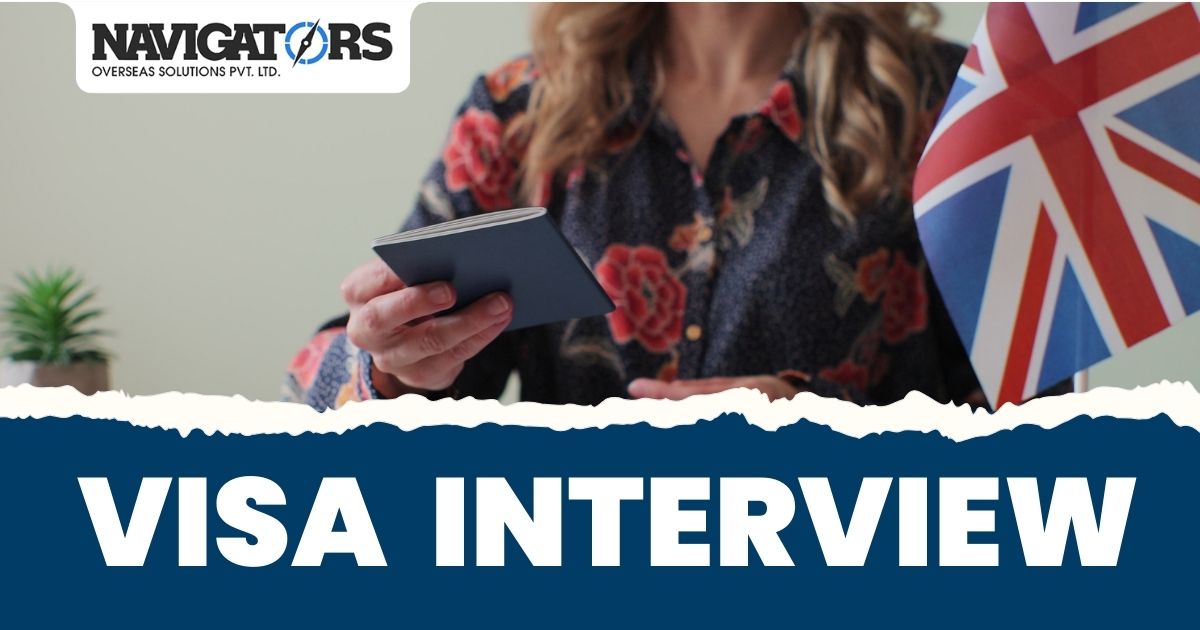- SCO 99, Sector 44-C, Chandigarh, India-160047
- +91 98090 90908
- navigators@ymail.com
So, you’re all set to study abroad! Exciting, isn’t it? But before you start packing your bags, there’s one crucial thing you need to tackle: getting your student visa. Navigating the maze of visa requirements can be tricky, but don’t worry! This guide will walk you through all the essential student visa requirements you need to know, ensuring you’re well-prepared for your journey.
First things first, what exactly is a student visa? A student visa is a document that allows you to enter a foreign country for the purpose of studying at an accredited institution. Different countries have different types of student visas, each with its own specific conditions. For instance, in the U.S., you might encounter visas like F-1 for academic studies, J-1 for exchange programs, or M-1 for vocational training. Knowing the type of visa you need is the first step in the process.

Now that you know what a student visa is, let’s talk about who can get one. Generally, to be eligible for a student visa, you must have proof of acceptance into an accredited institution. This means you’ll need an official letter from the school that confirms your enrollment. Additionally, you’ll have to demonstrate that you have the financial means to support yourself while studying—this might involve showing bank statements, scholarships, or a sponsor’s letter. Other common requirements include meeting language proficiency standards and passing certain health and character checks.

When applying for your student visa, you’ll need to gather a variety of documents. Here’s a quick rundown:
Having all these documents ready will make your application process smoother.
Let’s dive a little deeper into the financial side of things. Most countries require you to prove that you can afford not just tuition but also living expenses while studying. This might include everything from accommodation to daily expenses. Typically, you’ll need to show bank statements with a substantial balance, but scholarships or sponsor letters can also suffice. Keep in mind that the amount required in your account varies by country and the length of your study program.
Don’t have enough savings? Consider student loans or looking into part-time work opportunities allowed on a student visa.

If you’re heading to a country where a different language is spoken, you’ll need to prove that you can handle the language of instruction. For English-speaking countries, this usually means taking a test like TOEFL or IELTS. Each institution sets its own minimum score, so it’s crucial to know what’s required well in advance. Struggling with language skills? There are plenty of resources available, from language courses to online practice tests, to help you prepare.
Before issuing a visa, some countries require you to meet specific health and medical standards. This might include providing proof of vaccinations, undergoing a medical examination, or securing health insurance that meets the country’s requirements. Some nations are stricter than others, so it’s essential to know what applies to you. For instance, you might need to be vaccinated against certain diseases, or show proof that you’re not carrying contagious conditions.
The application process can be overwhelming, but breaking it down step by step helps. Start by filling out the necessary application forms, such as the DS-160 for the U.S., and gathering your supporting documents. Submit your application either online or at your local consulate or embassy. Make sure you double-check everything—mistakes can delay the process or even result in a rejection.

In many cases, you’ll be required to attend an interview as part of your student visa application. The thought of an interview can be nerve-wracking, but with the right preparation, you can nail it. Common questions include why you chose the particular institution, how you plan to fund your studies, and what your plans are post-graduation. Make sure to dress appropriately, bring all necessary documents, and practice your answers to boost your confidence.
Once you’ve submitted your application and completed your interview, the waiting game begins. Processing times vary depending on the country and the time of year, so it’s wise to apply as early as possible. Keep an eye on your application status online. As for fees, these can also vary but are usually non-refundable, so ensure you’re paying the correct amount using the approved methods.
Congratulations, your visa has been approved! But there’s still a few things to keep in mind. First, check the validity dates on your visa to ensure you don’t overstay. Next, start making travel arrangements, keeping in mind the entry dates specified on your visa. Upon arrival, be prepared to go through customs checks where you may need to present additional documents such as your visa and acceptance letter.
Getting the visa is just the beginning—maintaining your visa status is equally important. Most countries require you to maintain full-time student status, meaning you can’t drop below a certain number of credits. If your circumstances change—like if you need to transfer schools or change your program—you must report these changes to the appropriate authorities. Failing to maintain your status could lead to serious consequences, including deportation.
One of the biggest questions for many international students is whether they can work while studying. The good news is that many student visas do allow for part-time work, typically up to 20 hours a week during term time. Some visas might also permit full-time work during holidays. If you’re considering working off-campus or applying for an internship, you might need additional authorization or a work permit. Make sure to check your visa conditions before taking any job.
Let’s face it, studying abroad isn’t always smooth sailing. From dealing with visa denials to managing financial challenges, there are plenty of obstacles you might encounter. If your visa application is denied, don’t panic—you can often reapply after addressing the issues. Financial difficulties? Look into emergency funds or financial aid options. Homesickness and culture shock are also common, but remember, many schools offer counseling services and support groups for international students.
Securing a student visa is a vital step toward achieving your dream of studying abroad. By understanding the requirements, preparing the necessary documents, and following the application process carefully, you can enhance your chances of success. Remember to stay informed and proactive throughout your journey. Good luck, and enjoy the adventure of studying in a new country!